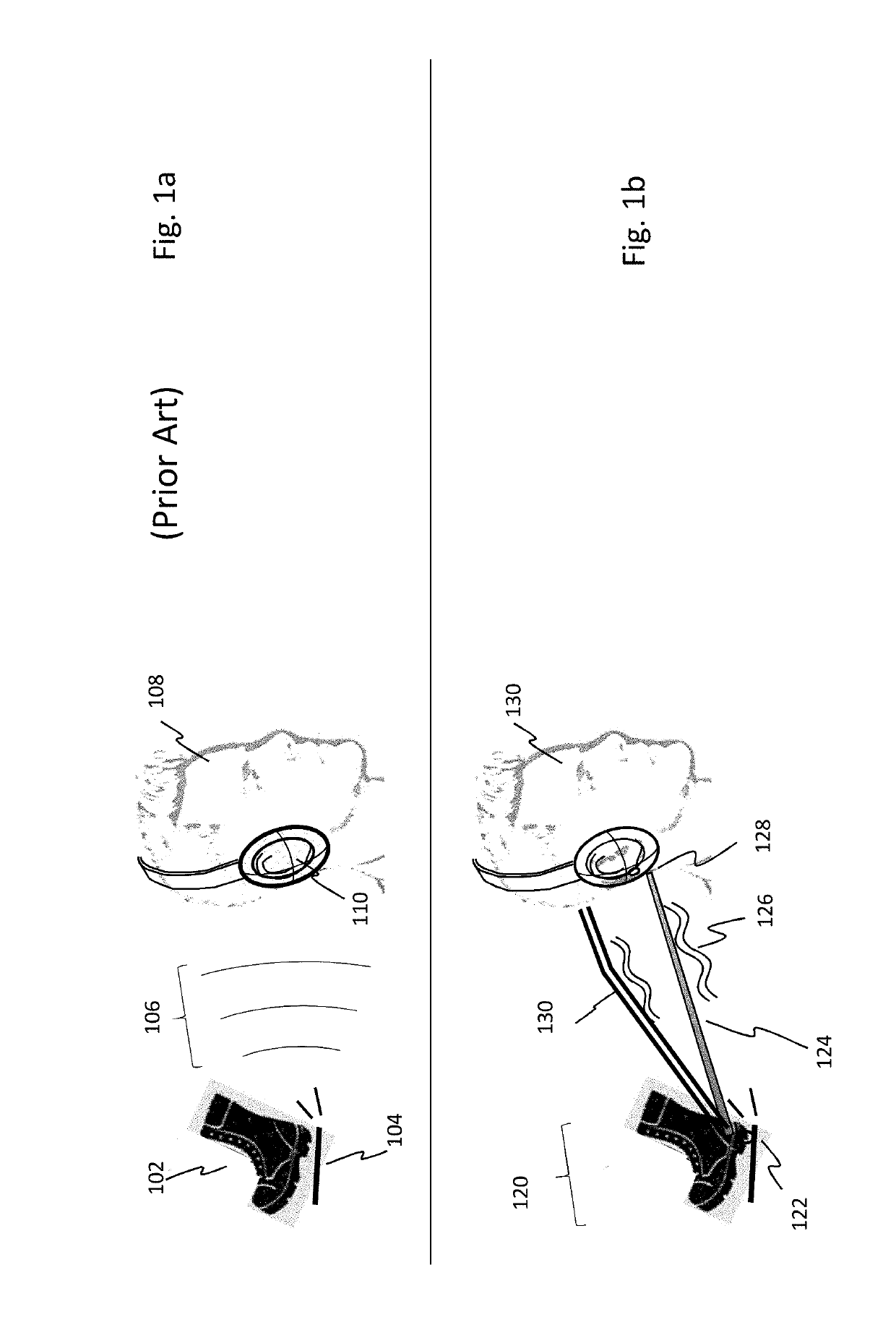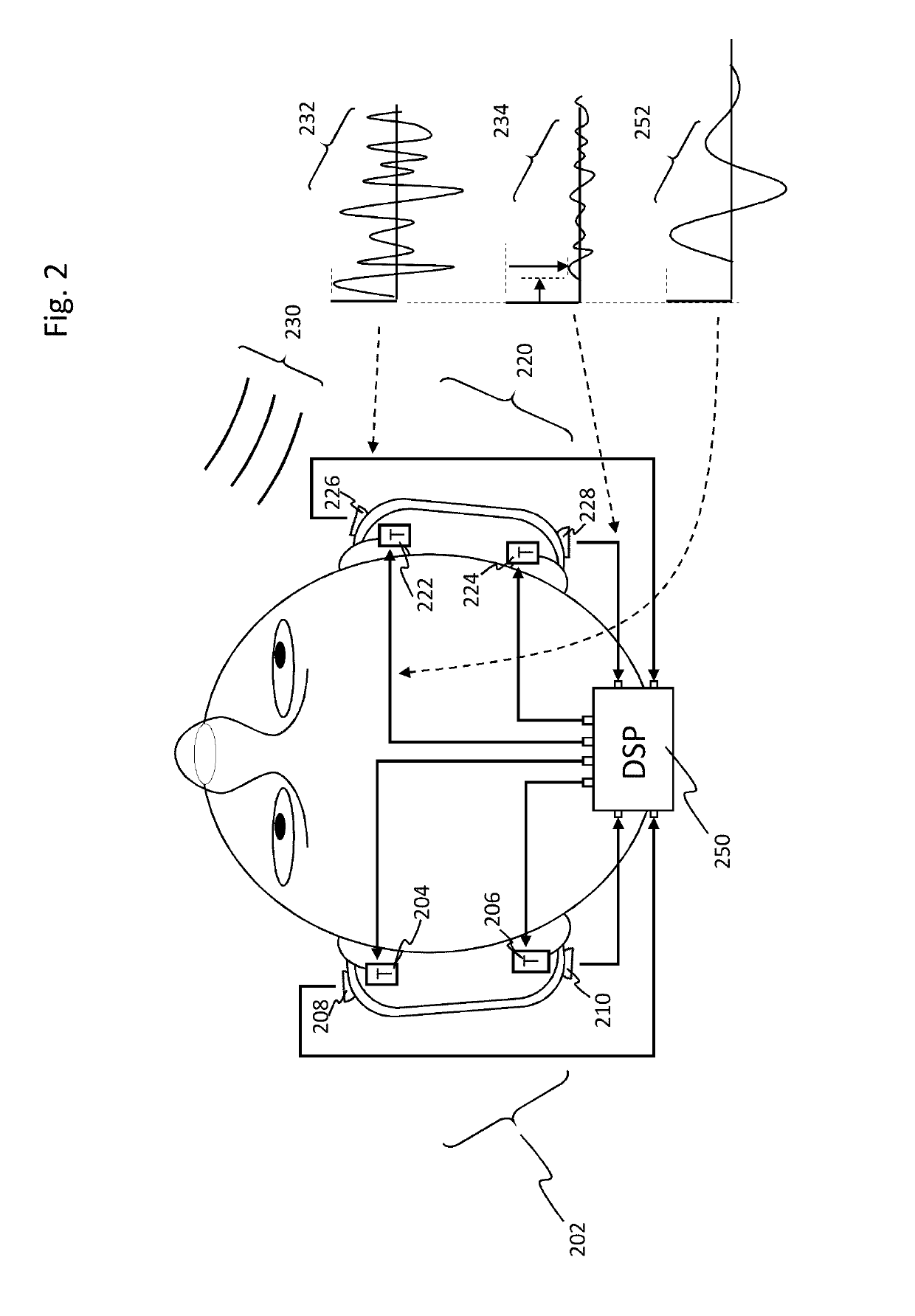Apparatus and methods for audio-tactile spatialization of sound and perception of bass
a technology of audiotactile spatialization and audiotactile frequency, applied in the field of audiotactile spatialization apparatus and methods, can solve the problems of more difficult localization, achieve the effects of enhancing the user's experience of audio spatialization, compactness, and robustness
- Summary
- Abstract
- Description
- Claims
- Application Information
AI Technical Summary
Benefits of technology
Problems solved by technology
Method used
Image
Examples
Embodiment Construction
[0053]Frequencies below about 200 Hz are perceived both by sound and touch, a fact that is familiar to anyone who has “felt the beat” of strong dance music in the chest, or rested their hand on a piano. Thus, the tactile sense has much to offer a listener when proper apparatus and signals are provided. Adding sound-derived tactile stimulation, appropriately processed, can improve the sense of sound location. Adding tactile stimulation (“taction”) is also of interest to those who enjoy loud music, as it can provide a listener with the enhanced intensity at a reduced acoustic volume, thereby sparing their hearing from damage.
[0054]A number of advantages can be achieved by enhancing the directional cues already present in sound with taction. Some embodiments of the present invention are directed to delivering a Tactile InterAural Level Difference (TILD). The enhancement offered by the subject invention may be understood with a simple example: an observer witnessing another person walki...
PUM
 Login to View More
Login to View More Abstract
Description
Claims
Application Information
 Login to View More
Login to View More - R&D
- Intellectual Property
- Life Sciences
- Materials
- Tech Scout
- Unparalleled Data Quality
- Higher Quality Content
- 60% Fewer Hallucinations
Browse by: Latest US Patents, China's latest patents, Technical Efficacy Thesaurus, Application Domain, Technology Topic, Popular Technical Reports.
© 2025 PatSnap. All rights reserved.Legal|Privacy policy|Modern Slavery Act Transparency Statement|Sitemap|About US| Contact US: help@patsnap.com



